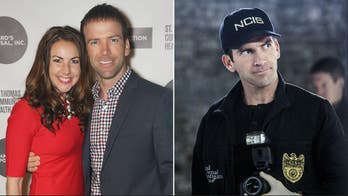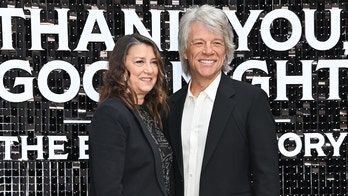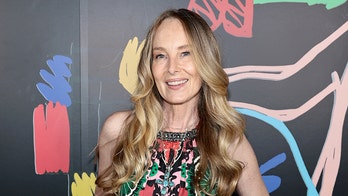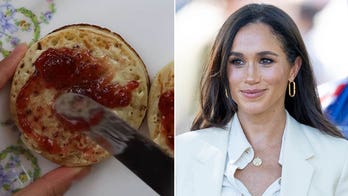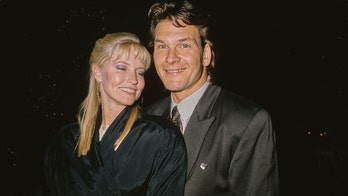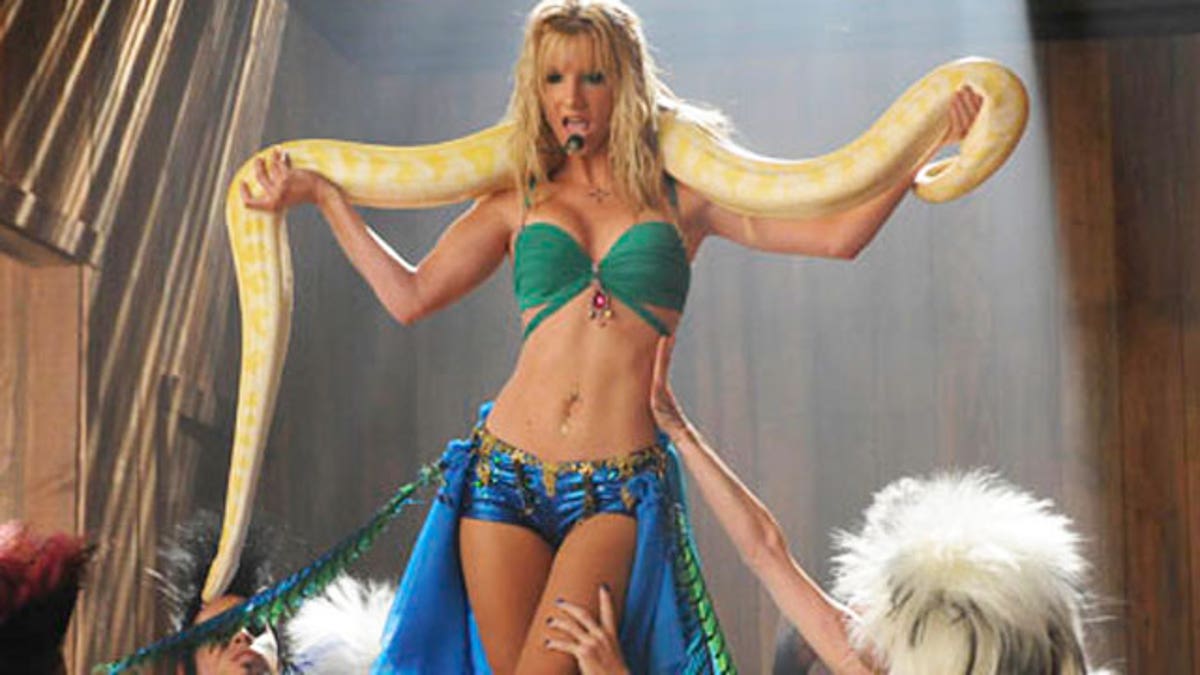
(FOX)
Last season the theatrical dramedy “Glee” generated massive buzz around much-hyped, artist-themed shows that paid tribute to mega pop stars like Britney Spears and Lady Gaga.
But that was Season 2.
“Glee” co-creator Ryan Murphy promised this year’s show, Season 3, would feature fewer of these tributes, and fewer guest celebrities, and would focus instead on heavier storylines involving its high-school aged characters.
A big ratings drop followed.
So far, the 2011-2012 “Glee” season has averaged about 8 million viewers an episode, 30 percent fewer than last season. And Tuesday's episode was the season's lowest yet, with 7.1 million viewers tuning in.
So how heavy were those storylines Murphy promised?
Last week, “Glee” ran a “First Time” episode, which featured gay and straight high school couples losing their virginity, complete with homosexual couple Kurt and Blaine and their fake IDs sneaking into a gay bar. Inside, they encountered a former classmate (also in high school) who boasted about his love for hanging in the aptly titled “Scandals” club.
Indeed, one of the backdrops for the season seems to be the show’s few remaining virgins, and when and where the right place to give it up will be. The director of the school’s production, “West Side Story,” even scolded his young leads for not embracing the “sexual awakening” of the musical, virtually leaving them with no choice but to consummate their respective relationships.
The Sept. 27 episode also raised eyebrows with its adoption-themed episode after teen mom Quinn announced that she wanted to get her daughter back from adoptive mom Shelby. This prompted hundreds of people to sign an online petition requesting that Murphy produce an adoption PSA to compensate for the “myths about adoption that harm adopted children, adoptive parents, and birth parents alike,” which they said were perpetuated by the episode.
Plus, as in previous seasons, Gleeks were continually confronted with unusually close teacher/student relationships – culminating in some questionable hookups and behavior. In the pot-stirring adoption episode, student Puck gets it on with Shelby, who adopted the child of biological parents Puck and Quinn, and is teaching at the school as the director of another glee club.
And let’s not forget that the current director of the glee club, Will Shuester, scored his job in the first season after his predecessor, Sandy Ryerson, was fired following a complaint that he had been inappropriately touching a male student.
While these envelope-pushing themes get a fair amount of ink, could they be taking away from the songs and theatrics young audiences fell in love with, and turning them off from the show?
“’Glee’ was edgy from the beginning, but … by exploring its characters more deeply, a little of the pervasive joy of the early seasons has been muted,” said Los Angeles-based entertainment/media expert, Scott Huver. “Issues have arisen that are not comfortable for all mainstream audience members.”
Dan Gainor, vice president at the Media Research Center, agreed that while the musical dramedy has been controversial since its debut, it was still driven by its entertainment factor prior to this season. But now, he says, the show appears to have reversed its focus.
"’Glee’ is also becoming gimmicky,” Gainor said. “Witness the contest to be on the show. (The Oxygen reality show “The Glee Project” debuted earlier this year, featuring Gleeks auditioning for a coveted spot on the show.) Sometimes that's a sign of creative people who are running out of ideas. It's hard to tell if ‘Glee’ is ready to have Blaine drive a motorcycle over a shark tank yet like Fonzie … But ‘Glee’ has always had one thing going for it -- music. Its cast can perform. Downplay the sex and play up the entertainment to make it family friendly.”
(Gainor is referring to an episode of the sitcom 'Happy Days' where the character Fonzie jumps a shark tank with his motorcycle. That episode led to the phrase "Jump the shark," which pertains to a television show running out of ideas and turning to improbable plot twists to keep its audience engaged.)
Huver also said the show’s declined ratings might be simply because the show just became too big, too fast, and a fall was unavoidable.
“Because ‘Glee’ became more than just a hit TV show, and quickly became an enormous pop culture phenomenon that felt almost all-pervasive for a while, a certain backlash was inevitable,” he said. “While there is still a large core of faithful ‘Glee’ viewers, those that were following it more as a fad of the moment have likely strayed away by now.”
But pop culture commentator Jenn Hoffman isn’t having it. She says “Glee” still has the goods, and, like “The Simpsons,” it’s a children’s show peppered with hidden gems of controversial content that only adults can really understand.
“’Glee’ is popular because the writing has always been clever and witty, and usually successfully navigates the fine balance between having storylines that are mature enough for adults while also being age appropriate for kids,” she said.
A spokesperson for “Glee” did not respond to a request for comment.
So will the lives of the seniors at William McKinley High play out on our small screens beyond their graduating season?
“TV history is littered with live-fast, die-young stories of phenoms that burned out quickly,” Huver said. “‘Glee’s’ future will largely be determined by its creative choices, including finding fresh ways to keep that buoyant sense of discovering a love of performance alive and challenging its characters without leaving the audience feeling uncomfortable or let down.”
